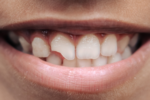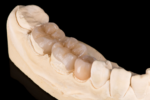When dental pain extends beyond a single tooth, it’s crucial to recognize the indicators of potential complications in surrounding tissues and beyond.
A tooth infection, also known as a dental infection, is a condition characterized by the growth and spread of bacteria within the tooth’s tissues, resulting in inflammation and pus formation. It is important to visit Emergency Dentistry in Mill Bay if you feel that infection can affect the pulp (the deepest part of the tooth containing nerves and blood vessels), the root, and the surrounding tissues.
Here’s a breakdown of the key components and stages of a dental infection:
- Caries (Tooth Decay)
Tooth decay, also known as caries, is caused by acid produced by bacteria in the mouth, which erodes tooth enamel—the protective outer layer. If left untreated, decay can spread to deeper tooth levels, emphasizing the significance of prompt intervention and preventive dental care. - Pulp Infection (Pulpitis)
As decay spreads, it has the potential to reach the pulp, which is the soft tissue in the center of the tooth that contains nerves and blood vessels. When bacteria infiltrate the pulp, it causes pulpitis, a type of inflammation. Pulpitis can produce severe toothache as well as sensitivity to hot and cold temperatures. - Abscess Formation
An abscess is a pus-filled pocket in the root of a tooth or in nearby tissues caused by a spreading infection. This causes pain, swelling, and the growth of a pimple-like bulge on the gums known as a tooth abscess.
Signs of Spreading Tooth Infection
- Persistent Pain
Persistent or increasing discomfort is one of the key symptoms that a tooth infection has advanced. If the pain was once limited to the affected tooth but is now extending to other areas of your mouth, jaw, or even the ear, this could indicate that the infection is spreading and needs immediate attention from a dentist near you. - Swelling and Inflammation
A dental infection is commonly characterized by swelling and inflammation surrounding the diseased tooth. If the swelling moves to other areas of your face, such as your cheekbones or beneath your eyes, it could mean that the infection is spreading through the surrounding tissues. - Fever and Fatigue
Fever and exhaustion as systemic symptoms may signal the spread of infection to the bloodstream, a condition called sepsis. If you experience these along with dental pain, seek urgent dental assistance from a dentist in Mill Bay, as sepsis can have severe consequences if not promptly treated. - Bad Breath and Unpleasant Taste
Poor breath and an unpleasant taste in the mouth can be indicators that the infection is spreading. Bacteria from an infected tooth can produce toxins that lead to foul breath, and the taste could be caused by the infection impacting the surrounding tissues. - Difficulty Swallowing or Breathing
A spreading tooth infection might cause trouble eating or breathing in extreme circumstances. If you detect any impediment or discomfort in these vital tasks, it’s a clear sign of a dental emergency that requires quick attention. - Pus Drainage
If you notice pus leaking from the damaged tooth or gums, this indicates that the infection has caused an abscess. An abscess is a pocket of pus that can form around the root of a tooth and, if broken down, transmit infection to other areas of the mouth and face.
Preserve Your Oral Health at Mill Bay Dental!
Mill Bay Dental can help you get a beautiful smile! Our experienced team is committed to preserving your oral health by providing specialized care, cutting-edge treatments, and a commitment to your overall well-being. We are proud to provide exceptional dental care for a long-lasting and confident smile.
Schedule your visit today!








